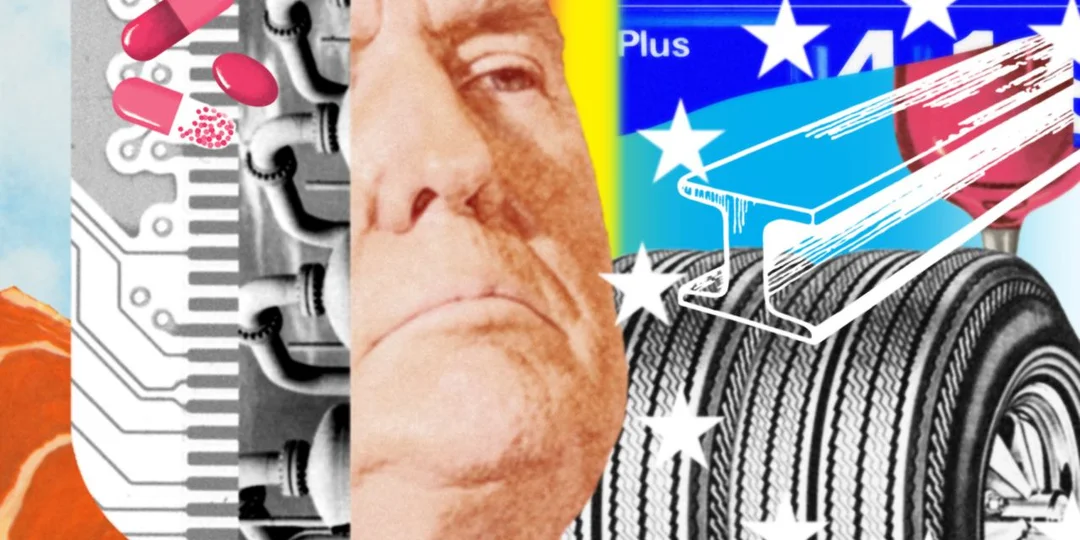
How Will Trump’s New Export Controls Impact Nvidia’s AI Chip Sales?
Nvidia, the giant semiconductor company, faces a significant challenge as it reacts to unexpected export restrictions imposed by former President Donald Trump on its artificial intelligence (AI) chips in China. This recent move marks a crucial development in the escalating tech trade war between the United States and China, raising questions about the future of AI technology and international trade relations.
In a shocking revelation on Tuesday night, Nvidia announced a staggering $5.5 billion charge associated with the new US export controls, with analysts anticipating a revenue loss exceeding $10 billion. The company's H20 graphics processing unit (GPU), designed to navigate previous restrictions, has now become a target under Trump's latest crackdown. Nvidia executives were left reeling after believing that their products would remain unaffected following a meeting with Trump at Mar-a-Lago earlier in the month.
In a company email seen by the Financial Times, it was disclosed that Nvidia had assured its Chinese clients—including tech titans like Alibaba, ByteDance, and Tencent—that their orders for H20 chips would be honored, which has proven to be a costly miscalculation. Trump’s decision to enforce stricter controls caught Nvidia off guard and has led to frustration among Chinese tech firms, who feel blindsided by this abrupt policy change.
The demand for AI technology surged in China, especially after DeepSeek's launch of a low-cost reasoning model, driving local companies to place nearly $17 billion in orders for H20 chips this year. However, most of these orders remain unfulfilled, jeopardized by the new restrictions. The $5.5 billion financial hit that Nvidia is now facing primarily reflects the cost of materials that were procured to meet existing orders, along with penalties for unfulfilled contracts.
As the Chinese tech community reacts, many companies are urgently seeking alternatives to the H20 chip. Trump’s export controls could inadvertently boost domestic manufacturers like Huawei, who are ramping up efforts to produce competitive AI processors. Meanwhile, uncertainties abound regarding the licensing process for Chinese companies to obtain H20chips, with many awaiting clarification on the criteria under which permits would be granted.
According to Intel’s communications with its Chinese customers, several of their advanced AI processors also require licensing, indicating that the repercussions of these export controls extend beyond Nvidia. The implications for the semiconductor market are profound and could reshape the landscape of AI technology, particularly in how Chinese firms engage with international suppliers.
As the tech trade war intensifies, it remains to be seen how companies like Nvidia will navigate the new realities posed by these export controls and what strategies will emerge in response. Could this be the beginning of a significant shift in the global AI chip market?
Nvidia declined to comment on the matter, and responses from Intel, the White House, and the US Commerce Department were not immediately available.
How will these changes affect the broader tech industry? We invite readers to share your thoughts and insights in the comments below.
Related issues news
What is the Nvidia H20?
The H20 is an AI chip specifically for the China market to comply with strict export controls developed under the Biden administration. The H20 is similar to the H100 Hopper chip used in the U.S. and most other markets, but with slightly slower speeds. Both are a step down from Nvidia's new Blackwell chips.
What are H20 chips?
Nvidia's H20 chip is a less powerful version of Nvidia's market-leading AI accelerators designed for the Chinese market. It is still very powerful. These chips can work together over high-speed connections.
X talks about this news
Can you Like
In a harrowing escalation of violence, Kyiv endured a series of missile strikes and drone attacks on April 24, leading to at least nine confirmed deaths and injuries exceeding 70, including six childr...
As President Donald Trump prepares for a highly anticipated rally in Macomb County next Tuesday, many are left wondering what this event will mean for Michigan and his administration's agenda moving f...
As President Donald Trump continues to make his mark on the iconic White House, his recent decisions regarding decor and improvements have sparked significant discussions about both style and substanc...